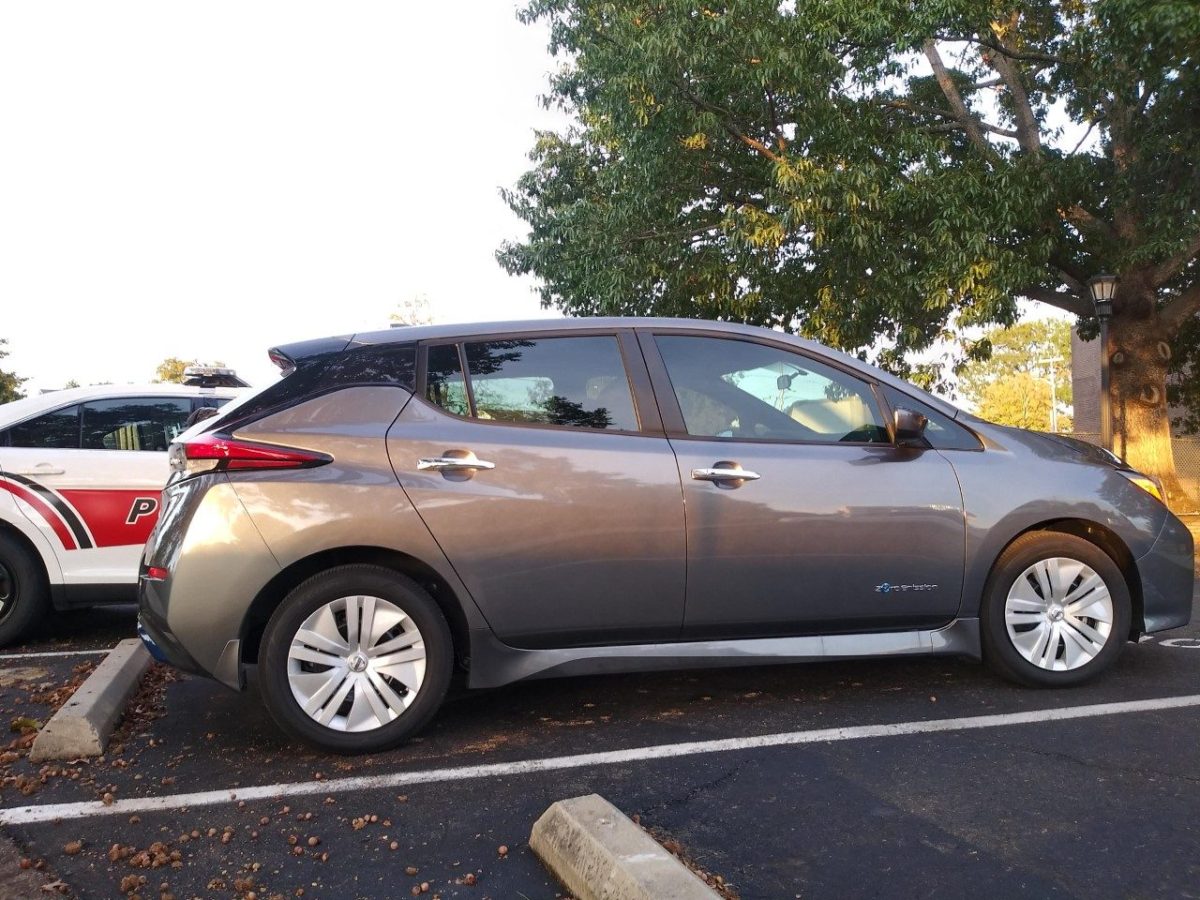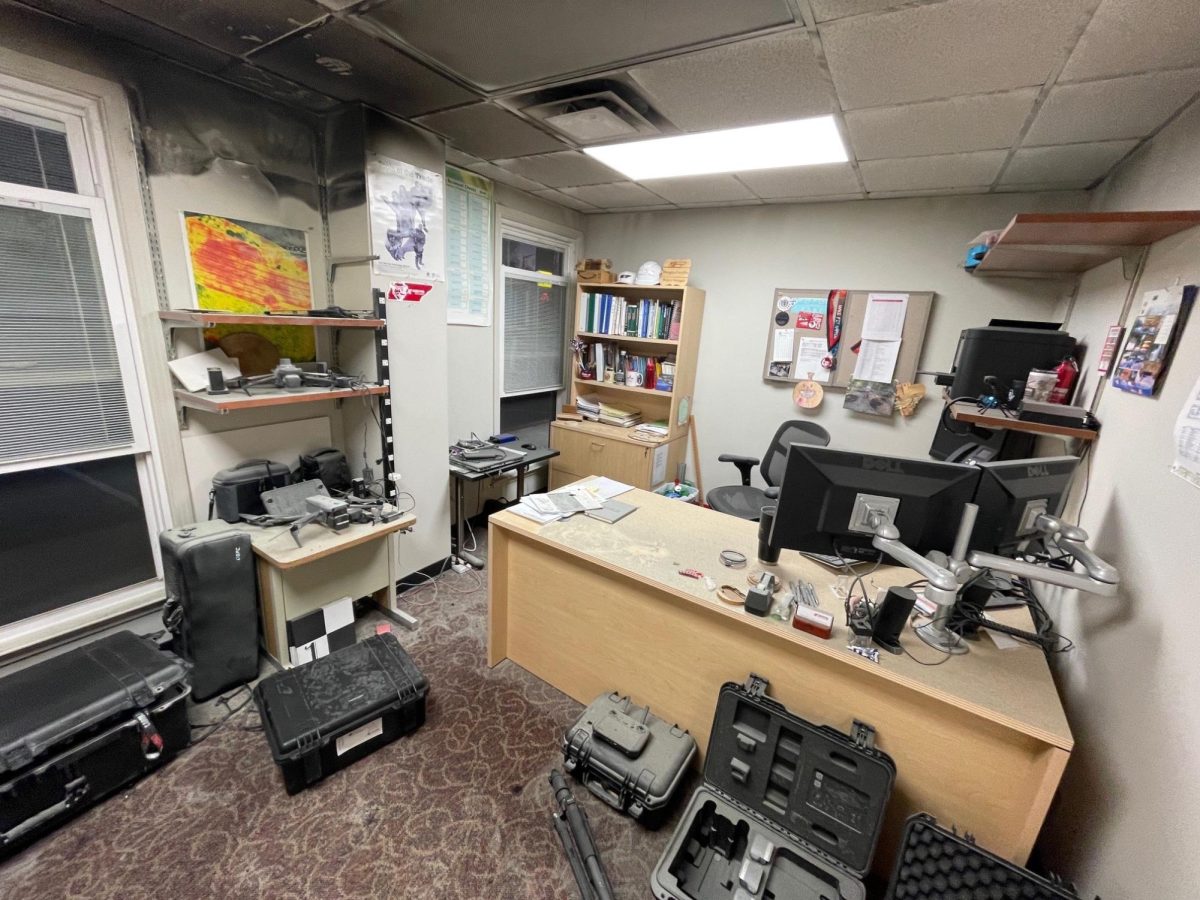From the campus BCycle units to the picnic tables rigged with solar-powered charging stations located in the outside of the bookstore, APSU is constantly working to improve campus sustainability efforts.
One of the most recent examples of APSU’s efforts to implement sustainable features around campus is the Office of Parking and Transportation’s recent acquisition of a 2019 Nissan Leaf.
Michael Kasitz, Assistant Vice President for Public Safety, answered a few questions regarding the Leaf and future plans to improve his department’s sustainability efforts.
“We had been looking at an electric vehicle for parking for at least 6 months,” Kasitz said. “We did not want to add to our carbon footprint, and the campus environment is perfect for an electric vehicle.”
The Leaf is the first vehicle in the department’s fleet. At the moment, there are no plans to replace any of the Campus Police department’s patrol vehicles with green vehicles like the Leaf.
“Police vehicles will continue to be internal combustion engines until electric vehicles get better range and become larger vehicles. When our utility vehicles are close to end-of-life, we will then explore the alternatives to determine the best solution for our needs,” Kasitz said.
Parking and Transportation’s goal in purchasing the Leaf was to acquire a vehicle with low emissions that could also be fitted with License Plate Recognition software. Once fitted with the License Plate Recognition functionality, the Leaf will patrol campus parking lots to ensure drivers are complying with campus parking rules.
Because the Leaf is still a relatively new addition to the department, Kasitz did not have precise figures about how long the Leaf’s battery will last per charge.
However, Kasitz expects that the Leaf “will be able to cover the campus multiple times in a day, [and it will need to recharge] perhaps every two days.”
Once the Leaf is fitted with the License Plate Recognition software, Parking and Transportation will have a better idea of how long the Leaf’s battery will last per charge.
Rather than dipping funds from the Campus Sustainability Fund, Parking and Transportation purchased the Leaf using funds from the parking auxiliary. However, Kasitz mentioned that Parking and Transportation spoke with the Sustainability Committee regarding the vehicle before purchasing the Leaf.
“[Parking and Transportation} is looking at other technologies that will assist in making parking greener, and hopefully we can create a partnership with one of those projects,” Kasitz said.
Parking and Transportation will soon begin working with the Sustainability Committee to implement more electric vehicle charging stations around campus. At the moment, there are three charging stations on campus. “One charging station is a quick charger, and the other two are Stage 2 chargers. These chargers are located in the 9th Street parking lot at the corner of Ford Street and College Street.” Kasitz said.







